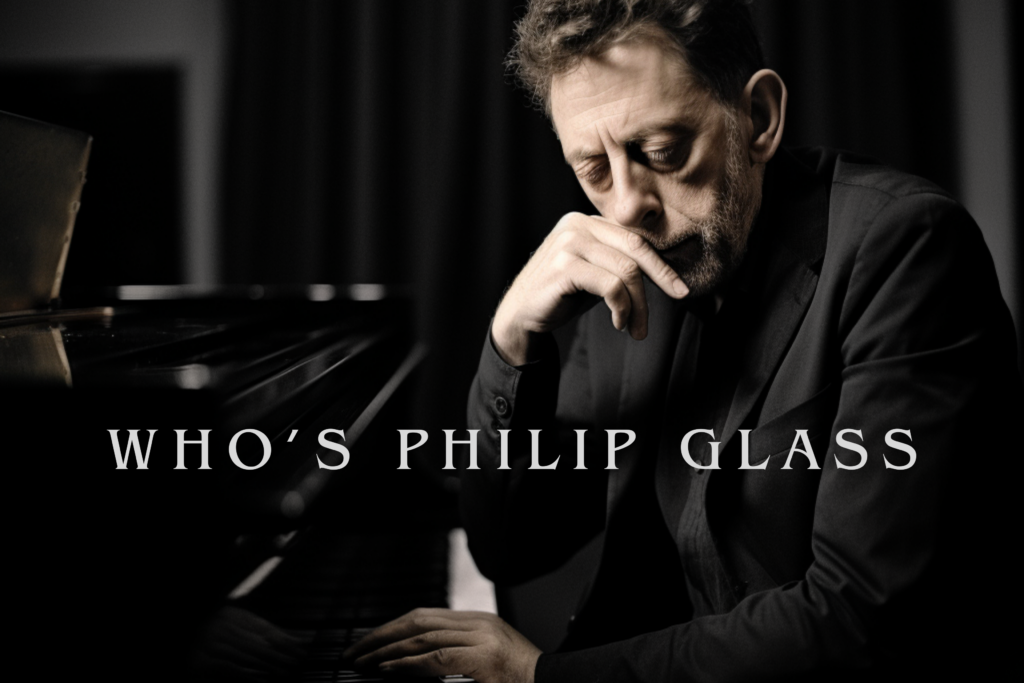Piano Lessons
Philip Glass: The Symmetry of Sound and Silence
Who’s Philip Glass: The Symmetry of Sound and Silence
In the vast tapestry of 20th-century music, few threads are as distinct and vibrant as the one woven by Philip Glass. With his unique voice in the world of minimalism, Glass has etched his name into the annals of musical history. Dive into the life, philosophy, and seminal contributions of this musical visionary. Who’s Philip Glass?
From Baltimore to the World Stage
Born on January 31, 1937, in Baltimore, Maryland, Philip Glass’s introduction to music came early. The eclectic collection of records in his father’s radio repair shop offered young Philip a universe of sounds. This early exposure set the stage for his enrollment at the Peabody Institute. His quest for knowledge led him to the Juilliard School and later to study under the influential Nadia Boulanger in Paris. This European sojourn also brought him in contact with the music of Ravi Shankar, the sitar maestro, leading to a fusion of Western and Eastern musical ideas in Glass’s work.
Philosophy: The Repetition and Evolution of Sound
Glass’s approach to music is deeply philosophical. He challenges traditional notions of progression and development in music. Instead of grand crescendos or stark contrasts, Glass prefers subtle shifts and iterative processes. His music often revolves around repetition, but it’s a dynamic repetition – each iteration brings a slight change, a gradual evolution.
In this repetition and gradual transformation, there’s a hypnotic quality, almost meditative. Glass himself has noted the influence of Eastern philosophy and spirituality on his work. Like watching ripples in a pond, his compositions invite listeners to focus on the present moment, noticing subtle shifts in the soundscape.
Glass’s Imprint on Music
Philip Glass, alongside other luminaries like Steve Reich and Terry Riley, became synonymous with minimalism in the 20th century. However, Glass’s contributions extend beyond just this genre. His music breaks down barriers, melding classical, opera, theater, and even rock.
He has been credited with bridging the gap between classical and popular audiences. Glass’s compositions, while rooted in the classical tradition, have a contemporary edge, making them accessible and resonant with a broad spectrum of listeners.
Three Pillars of Glass’s Repertoire
While his oeuvre is vast, these three compositions provide a glimpse into the depth and range of Philip Glass’s genius:
-
Einstein on the Beach
Co-created with director Robert Wilson in 1975, this five-hour-long opera eschews traditional narrative structures. It’s an abstract, mesmerizing tapestry of sound, visuals, and movement, reflecting on the life and theories of Albert Einstein.
-
Koyaanisqatsi
Glass’s score for this 1982 experimental film directed by Godfrey Reggio is both haunting and evocative. The film, devoid of dialogue or traditional narrative, presents a series of slow-motion and time-lapse footage of cities and landscapes. Glass’s music underscores the film’s reflection on modern life and its disconnect from nature.
-
Glassworks
Released in 1982, this six-part chamber music work was intended to introduce Glass’s music to a wider audience. It encapsulates his signature style, with its repetitive structures evolving gradually, creating a mesmerizing auditory experience.
Conclusion on Who’ Philip Glass
Philip Glass’s impact on the musical landscape is undeniable. Through his iterative motifs and philosophical approach, he prompts listeners to experience music as a living, breathing entity – constantly evolving, yet rooted in a moment. In an era marked by complexity and information overload, Glass’s compositions offer a sanctuary of simplicity and introspection. In his own words,
The real issue is not how do you, the composer, feel, but how does the listener feel when they hear your music?
With Glass, the listener is invited on a profound, introspective journey – one note at a time.
Do not miss our new post about other famous modern composer: Max Richter.

